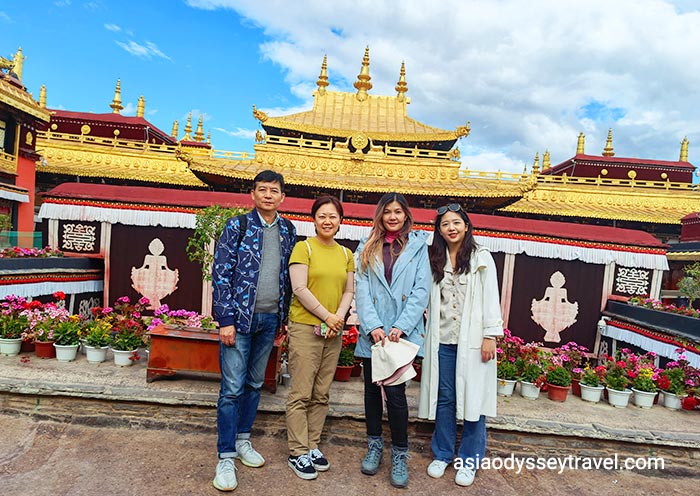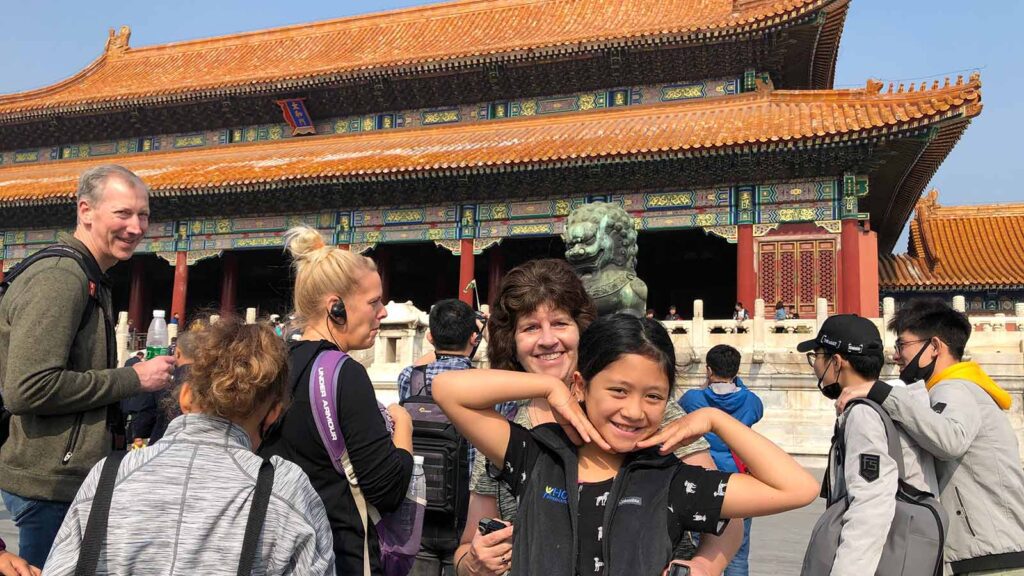20 New Facts For Picking China Tour Websites
Wiki Article
Top 10 Tips For Shopping Etiquette And Bargaining In China
1. Offer between 50-70% lower than the amount you quoted Then, begin negotiating. To prove that you're serious, act professional but courteous.
Pro: It allows you to establish your position without causing any offense to the seller.
Con: A low starting price can frustrate a seller, particularly for items with a smaller margin.
2. Knowing the market value
TIP: Study the cost of the item prior to purchase to avoid overpaying.
Pro: It gives you the confidence to negotiate with confidence and prevent getting scammed.
Cons: Researching exclusive or handcrafted products can take a lot of time especially if they're not easy to find.
3. Show Genuine Interest
Tip: Sellers are inclined to negotiate when they believe that you are truly interested in purchasing.
Pro: It helps build relationships and increases the chances of receiving the best price.
Con: Your overenthusiasm could be taken to mean a desire or desire to pay more. This can weaken your position.
4. Walk Away Strategically
Tip: If the price doesn't drop, slowly walk away. Sellers will often call back to make you a better offer.
Pro: It is an effective tactic to negotiate the best price.
Cons: It could backfire in the event that the seller is unable to lower the cost of an item, particularly if it's in high demand.
5. Learn Basic Mandarin Phrases
Tip: Phrases like "Tai gui le!" (Too expensive!) It is also possible to (Too expensive!) say "Pianyi ba Yidian" (Can you cut down on the price?) Show you put in.
Pro: It makes the negotiation more personal and often softens the seller's stance.
Cons: Limited words may not be useful in more complex discussions.
6. Be Patient and Calm
A tip: Negotiations can require time. To avoid looking anxious, maintain your cool and collected attitude.
Pro: Sellers often offer buyers who are peaceful and persistent with better offers.
Con: It requires time and energy, especially in markets that are crowded.
7. Bring Cash
Tips: Sellers might be more willing to lower prices for cash payments rather than digital ones.
Advantage: Cash discounts can be secured quickly, especially for small vendors.
Con: Carrying money in crowds can be dangerous due to pickpockets.
8. Discounts on Group Reservations
Tips: Request bulk discounts when purchasing multiple products.
Pro: Increases the negotiation skills and aids you negotiate better bargains.
Pro: You have to buy more things, which might not be a good fit for your requirements.
9. Don't Be Afraid to Say No
TIP: Politely decline and walk away if a seller refuses to lower the price to your range.
Pro: Reduces the chance of buyer regret and helps you stick to your budget.
Con: Might be unable to get an item you've always wanted.
10. Know when to avoid bargaining
It is not appropriate to bargain in high-end department stores, stores, or supermarkets.
Pro is that it maintains cultural sensitivity and helps avoid embarrassment.
Cons: Reduces your chance to negotiate in certain situations.
The benefits of bargaining with Chinese
The process of negotiating the cost is the best method to save money.
Cultural Experience: Bargaining allows you to learn more about the local culture and customs.
Personal Interaction: Forms an association with local vendors.
Pros and Cons of Bargaining in China
The process of bargaining can be lengthy for shoppers who are new especially.
Language Barriers: Communication can be difficult if one does not speak Mandarin.
It can be stressful for some people: It is not for everyone who enjoys the back-and forth of bargaining.
These suggestions will help you navigate Chinese markets without fear and enjoy the joy of haggling. Have a look at the top rated view information about this spot for blog recommendations including shaoxing wine the best yellow wine in china, hohhot transportation, eating in urumqi, chinese festival cuisine, taishan, kashgar tour maps, the top 4 movies about kung fu and chinese culture, datong beijing high speed railway schedule and timetable, eating in shangri la, great tang all day mall xian.html and more.

Top 10 Tips On How To Avoid Fees And Photography Regulations When Going To Temples In China
1. It is possible to plan your budget by researching ticket prices in advance. To plan your budget, research ticket prices before you go.
Pro: Helps you avoid surprises and ensure you have the correct amount of cash or digital payment.
Con: Unexpected expenses, such as special exhibition fees could be incurred.
2. Bring Cash or Electronic Payments
Some temples will only accept cash, or popular Chinese payment methods like WeChat Pay or Alipay.
Pro: Smooth entry and no payment delays.
Cons: There aren't many choices for travelers not familiar with digital payment systems.
3. Watch for signs that mention photography
Make sure you check the signage for any restrictions on photography. Many temples do not allow photography within their sanctuaries, or at the vicinity of sacred artifacts.
Pro: Avoids accidental disobedience or rules-breaking.
Cons: Rules can differ from one region to the next within the same temple. You will need to be extra vigilant.
4. Avoid Flash Photography
In places that allow you to take photographs, be cautious about using flash as this can cause damage to artifacts and disturb worshipers.
Pro: Preserves temple's art and environment.
Insufficient lighting can cause poor photography.
5. Respect the respect for the privacy and dignity of worshippers
Do not take photographs of religious ceremonies or individuals who are praying unless they have given you permission.
Pro: Shows cultural sensitivity and respect for privacy.
Con You're ability to capture the atmosphere of a temple might be limited.
6. Follow Drone Restrictions
Tip: Drone use is generally forbidden close to temples. Make sure you are aware of the local regulations prior to using a drone to take aerial photos.
Pro: No fines and no confiscation.
Con: Limits the opportunity for unique photography angles.
7. Be ready for any additional charges
A tip: Some temples charge an additional fee to use professional equipment like DSLRs or Tripods.
Pro: Ensuring you take high-quality photos legally.
Cons: Adds to your total expense for the trip
8. Dress in a modest manner
It is essential to dress appropriately for temples. Indifference for the temple's decor could lead to you being denied entry, or being restricted in certain areas.
Pro: This displays respect for the religion and helps you to blend with the crowd.
Con: Additional preparation is required particularly in hot weather.
9. Beware of crowds when taking photos
Visit the park early in the day or late in afternoon to avoid the crowds. This will allow photographers to snap photos without getting in the way.
Enhances the quality of your images and experience.
Cons: It requires you to alter your routine, which can be difficult to do.
10. If you are unsure, Get Permission
If you're unsure of the photography rules, please inquire with temple personnel for clarification or check for signs.
Pro: You will prevent unintentionally breaking rules.
Con: Language barriers might make communication difficult.
The benefits of following photography Fees
Cultural respect: Respect the local customs or religious practices.
Preservation of artifacts: Protects against the destruction of fragile structures and art.
Positive Experiences Beware of confrontations with temple personnel or worshippers.
Legal Compliance: Eliminates penalties or fines for violating photography rules.
Cons of Fees as well as Photographic Rules
Costs increase: Additional costs like entry fees and photography permits may add to the total.
Limited Creativity: Restrictions may make it difficult to capture the perfect image.
Language Barriers - Difficulty in comprehending signage or talking to local staff.
Time-consuming research: Researching and preparing for the future requires additional effort.
If you adhere to the rules for photography and fees by following the rules for fee and photography, you'll be able to enjoy your visit and honor China's stunning temples. While at the same time their cultural and spiritual authenticity will be maintained. Take a look at the top read more about this incredible site for more recommendations including eating in guilin, shopping in dunhuang, ancient dapeng fortress, shopping in shangri la, ganden temple, chinese knot which has a long history and a symbolic meaning, mount li a royal garden since the zhou dynasty, shopping in nanjing, xishuangbanna, hua diao the most famous shaoxing yellow wine and more.
